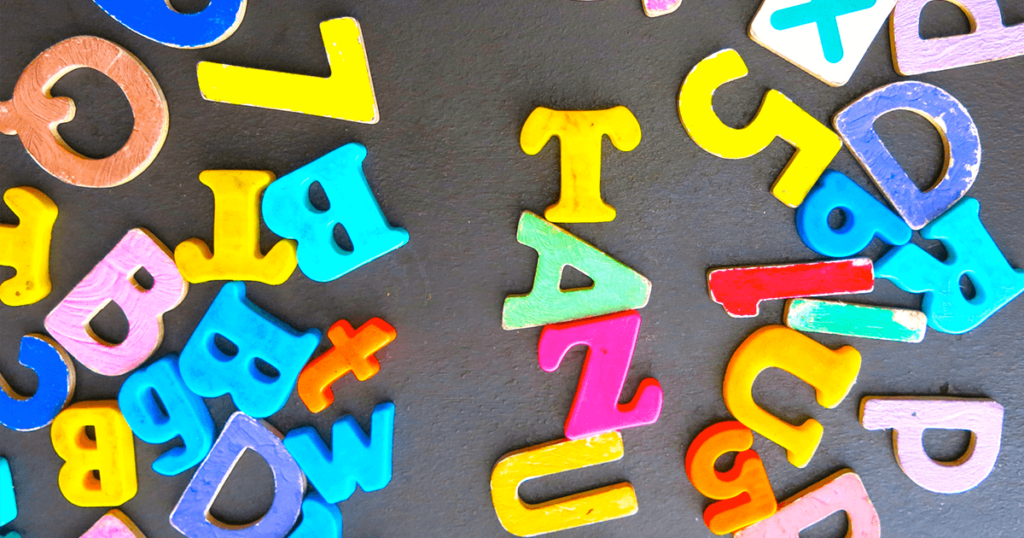
Some of our favorite expressions are what I call conjoined terms. These are phrases composed of two related words that rhyme or alliterate and are fun to say: hotsy-totsy, hoity-toity, topsy-turvy, dilly-dally, shilly–shally, flim–flam, flip-flop, fiddle–faddle, fuddy–duddy, hocus–pocus, hoochie–coochie, hanky–panky, herky–jerky, okey–dokey, roly–poly, mumbo jumbo, super–duper, willy–nilly, creepy-crawly, wishy–washy, and thousands more.
Linguists have their own word for these terms: reduplicatives. Reduplication is a topic of great interest to linguists, and is discussed in books dating back to the 1860s. Some look askance at this kind of wordplay. In English Words: History and Structure, Donka Minkova and Robert Stockwell call reduplication “unimportant, though often amusing.” Claptrap. The fact that such terms illustrate playfulness in adult discourse doesn’t make them inconsequential—far from it. The etymologist Allen Walker Read thought such “jubilance” was an essential part of word creation. “The play spirit,” he explained, “may even have been the prime mover in the development of language itself.”
In his book Reduplicative Words in English, Nils Thun concurred. “Not only children but our whole species are given to play,”writes Thun. “An element of playfulness is to be found also in language, mankind’s most specific characteristic. There is play with language as well as with objects. Reduplicatives belong to this domain. They are expressive and playful.”
One reason we like conjoined terms is that they remind us of our childhood, when we played with yo-yos and teeter-totters, had Band-aids put on boo-boos by Mama or Dada, and talked slyly of pee-pee and doo-doo. The linguist David Crystal points out that in addition to being fun, repeating words in what he calls “nursery language” makes them easier to remember.
Unlike in other parts of our lexicon, the actual meaning of conjoined terms matters less than how they sound. This is especially true of those that are onomatopoeic, sounding like what they depict. Choo-choo. Click-clack. Clip-clop. Doo-wop. Boogie-woogie. Pitter-patter. In some cases, one of the words in conjoined terms exists primarily to rhyme or alliterate with the other. What is a dokey anyway, a nilly, a toity, a totsy, a poly, or a roly, for that matter? What’s the difference between a knick and a knack? A doo and a dad? A gee and a gaw? Higgledy and piggledy? Airy and fairy? Is it better to dilly or dally? To be a fuddy or a duddy? A riff or a raff?
Who cares? We just like the cadence of such conjoined terms. Duper, after all, adds little to super except rhyme and rhythm. Rhyming is the main reason we talk of fat cats rather than fat dogs. In political palaver, the alliteration of flip-flop makes that term far more expressive than change positions.
Linguists include reduplicatives among the expressions they call fanciful formations. Like flip-flop, some combine existing words: walkie-talkie, for example, and ship-shape. Others consist of the same word repeated: hush–hush, ha–ha, ho–ho, no-no, so–so, tut–tut, rah–rah, bye–bye.
But conjoined terms aren’t just fanciful. Some begin that way, then find a useful role in the language, sometimes replacing an existing term. Ping-pong is not only more onomatopoeic than table tennis, it has broader applications too, as when Texas Senator John Cornyn said of Congressional negotiators, “We’ve ping-ponged a number of offers and counteroffers back and forth.” Cornyn could have said they’d table tennised their proposals, but it would have lacked a certain je ne sais quoi. In a similar sense, no respectable synonym for chi-chi or hoity-toity has the same meaning and appeal. Those reduplications are both playful and functional.
We could use a better way to depict them than the cumbersome reduplicative, however. I’ve seen reference to tautonyms, clones, and flip-flop words, as well as companion words, ones that are seldom seen without the presence of another (shilly-shally, roly-poly, etc.) My own suggestion is conjoined terms. What’s yours?
In this last column let’s return to our roots and revive the naming contest. For an American Scholar tote bag, suggest a better way to describe these verbal couplets. The best three will win a bag.
As for myself, since this is the grand finale of “Wise to the Words,” permit me to say that it’s been a pleasure. Ta-ta.
Choosing from among all the good suggestions for renaming “reduplicative” words wasn’t easy. The winning entries are:
echonyms (Michael C. Rush)
language loops (Joyce B.)
twin-nyms (Don Cunningham)
Watch your mailbox for an American Scholar tote bag!
Thanks to all of you who took part in this final contest, and who have read Wise to the Words and Back Talk over the years.

